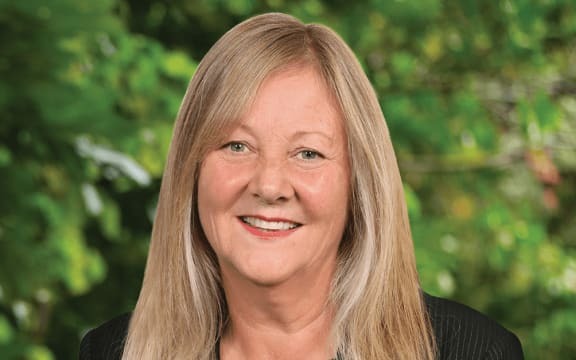Te Pūkenga to be replaced with 8-10 institutions - minister
Reporting by RNZ
07 December 2023, 10:12 PM
 Southern Institute of Technology (SIT). Photo: Supplied
Southern Institute of Technology (SIT). Photo: SuppliedThe new tertiary education minister says Te Pūkenga will be replaced with eight to 10 individual institutions, and hopes legislation will be in place within eight months.
The government has begun the process of disestablishing the super-institute which combined 16 polytechnics and nine workplace training providers on 1 January this year.

Penny Simmonds Photo: National Party supplied
Tertiary Education Minister Penny Simmonds told the organisation on Thursday it was no longer a government priority to centralise vocational training and education - and asked it to review its number of jobs, creating uncertainty for hundreds of staff.
Simmonds said although a lot of money had been spent in terms of employing people at head office Te Pūkenga was not delivering its promised efficiencies.
"In essence the institutions are still delivering the training, they are still doing their own finance, their own payroll, their own admin, their own IT.
"So they have been continuing to run and deliver education and training while this big bloated head office and lots of money being spent on consultants had been writing strategies and preventing the individual institutions from making sensible choices and sensible decisions."
The new government was looking at keeping eight to 10 institutions across the country with some shared services where it made sense, she said.
"What we aren't talking about is a big heavy bloated head office that slows down decision-making and stops innovation and stops communities having a say on what goes on in their local polytechnic."
Consultation on which eight to 10 institutions will remain needs to get underway, she said.
"We need to be talking to those campuses, we need to be talking to those communities and those industry leaders."
Decisions about things like staffing would be done at a regional level, she said.
"They know the staffing levels that are needed, they will know what their budget can afford. It won't be someone in the centre making that decision based on no knowledge of what's needed in that region."
There was a need to see what was financially viable and met communities needs, she said.
A fast process was needed given "it had been a long convoluted period of anxiety and uncertainty" for staff, she said.
Simmonds said she hoped the legislation to make the change would be in place within six to eight months.
She denied there would need to be rebranding, saying polytechnics already had their own branding and did their own marketing and it would just be removing the Te Pūkenga branding.
Centralising polytechnics under Te Pūkenga had not improved the debt situation, she said.
She said under the previous system of individual polytechnics it was not competing against each other which put them into debt.
"It has been small pockets of institutions that weren't financially viable because they were too small and then in other cases larger ones that were not operating sensibly and were not operating well."
Govt needs to focus on funding not restructuring - union
Tertiary Education Union national secretary Sandra Grey said the move was very unsettling and some staff may question whether they want to continue working in the area of vocational education.
"There is a very strong commitment to learners from staff in the sector, but their jobs have been really tough, we've seen greater numbers of people leaving the sector over the last few years anyway because of the ongoing change that's going on - I think that will just get worse despite that commitment to students."
There had already been major change in the sector in the last 18 months with all of the senior managers at the former Industry Training Organisations and polytechnics made redundant, she said.
"And now apparently that is not needed and something new is needed."
It came down to a lack of money and the government should be addressing that rather than the structure, she said.
"Te Pūkenga doesn't have enough money to run but individual polytechnics and individual industry training organisations won't have enough money to run either."
Grey said a model where the institutions were forced to compete for money and students was wasteful and did not deliver for the students and communities.
The government should not rush the change and needed to slow down, she said.
Reproduced with permission


